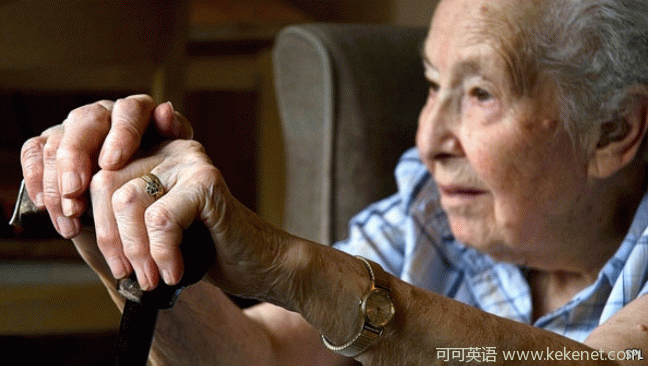(单词翻译:单击)

Science and Technolgy
科技
Arthritis and botulinum toxin
关节炎与肉毒杆菌毒素
Something to celebrate
值得庆贺
Botulinum toxin may help relieve chronic pain
肉毒杆菌毒素也许能够帮助缓解慢性疾病的痛苦
ARTHRITIS is the bane of millions of lives. Though it comes in many forms, their common theme is inflammation of the tissues around a joint in the skeleton. Treatment is merely palliative: anti-inflammatory drugs, painkillers or both. But a piece of research published this week in Biochemistry, by Edwin Chapman of the University of Wisconsin and his colleagues, offers arthritis sufferers hope from a strange quarter: botulinum toxin.
关节炎是数百万人的噩梦。关节炎有多种形式,但它们共同的特征是关节处组织的炎症反应。对此的治疗手段往往是治标不治本:消炎药,止痛药,或者两者同时用。但是由威斯康辛大学埃德文?查普曼博士以及他的同事们在本周生物化学杂志上的发表的一项研究,为关节炎患者提供了希望:肉毒杆菌毒素。
This toxin is one of the most dangerous substances on earth. It is made by a bacterium called Clostridium botulinum. Even a small amount (less than a microgram) is enough to kill a healthy adult. The toxin molecules attach themselves to a protein called synaptotagmin, which is found on the surface membranes of nerve cells at their junctions with muscle cells. Thence they are ingested into the cell, where they disable another protein, SNAP-25, the role of which is to help release a chemical messenger called acetylcholine. This messenger's job is to tell muscle cells to contract. Without that signal, muscles stops working. If this happens all over the body, death is rapid.
这种毒素是地球上最危险的物质之一,它是由一种叫肉毒杆菌的细菌合成。仅仅很小的量(小于一微克)就足以杀死一个健康成年人。这种毒素能结合到一种叫做synaptotagmin(SYT)的蛋白上,SYT则位于神经肌肉接头处神经细胞的细胞膜表面。然后这种毒素被吞入细胞内部,进而让另外一个叫SNAP-25的蛋白失活,SNAP-25的作用是帮助一种叫乙酰胆碱的化学信使的释放。这种化学信使的作用则是让肌肉细胞进行收缩。没有这种信号的话,肌肉便停止工作了。如果全身都发生这样的情况,死亡便接踵而来。
Inject the toxin locally, though, and you can do some good. It wipes away frown lines and other wrinkles, which are caused by overstimulated muscles, thus allowing ageing celebs to appear on the covers of gossip magazines without embarrassment. More seriously, it is used to treat disorders ranging from headaches to muscle spasms. It only works, however, in cells that have synaptotagmin on their surfaces. Which is where Dr Chapman comes in.
然而局部注射肉毒素还能带来好处。它能抚平额头和其他部位的皱纹,这些皱纹恰恰是因为肌肉被过度刺激引起的。它使得那些上了年纪的名流们毫无尴尬的出现在街头杂志的封面。它更为严肃的用途是治疗各种生理紊乱,包括从头痛到肌肉痉挛。然而,它仅仅能在那些表面具有SYT蛋白的细胞中起作用,这正是查普曼博士的切入点。
Inflammation is also caused by chemical signalling. Cells called macrophages summon all sorts of others to an injury, to try to repair it. If repair cannot be effected, though (as is the case in arthritis), the signalling never stops. The swelling causes pain, and the patient suffers. But macrophage signalling also involves SNAP-25, so Dr Chapman thinks he can use botulinum toxin to shut the cells up.
炎症反应同样是由化学信号引起的。巨噬细胞召集其他免疫细胞到达受伤处,并试图修复伤害。但如果修复不起作用(如同关节炎的情况),则这些信号就不会停止。肿痛造成痛苦,而病人只能忍受。但是巨噬细胞的信号通路中也包括SNAP-25,因此查普曼博士想,他能够用肉毒素来关闭这些免疫细胞。
The problem is that macrophages have no synaptotagmin on their surfaces. They do, though, have other proteins, called Fc receptors. What is needed is a way to get toxin molecules to attach themselves to Fc receptors. And this is what Dr Chapman thinks he has managed. His trick is to link each molecule to an antibody. An antibody is a protein that binds to a hostile invading organism. If this does not kill the invader outright, then it acts as a flag for the bug in question to be eaten by a macrophage. That happens when the antibody that is attached to the invader also attaches itself to an Fc-receptor molecule. This done, the invader is ingested.
问题在于,巨噬细胞的表面并没有SYT蛋白,他们表面有的是另外一种被称为Fc受体的蛋白。现在只需要找到一个办法,让肉毒素结合到Fc受体上去,而查普曼博士认为,他办到了这一点。他的绝招是将每个分子与抗体连接起来。抗体是一种能结合入侵有机体的分子,如果抗体不能马上杀死入侵者,则它将作为入侵者的一个标记,使得它们有可能被巨噬细胞所吞噬,这个过程只有当结合在入侵者上的抗体同时也能和Fc受体分子结合时才会发生,而这个步骤一完成,则入侵者就被吞噬了。
Dr Chapman's plan was to use this mechanism to get macrophages to eat toxin molecules. Once inside, they would disable SNAP-25 and thus stop the release of signalling molecules in the way they do in nerve cells. The result, the theory goes, would be an end to the chronic inflammation that arthritis causes, and thus to the chronic pain.
查普曼博士的计划是,利用这个机制,让巨噬细胞把肉毒素吞进去,而进入细胞之后,它就能使SNAP-25失去活性,从而像在神经细胞中一样,阻止信号分子的释放。如果这个理论可行,那么由关节炎所导致的慢性炎症将被终结,同时被终结的,还有长期以来的痛苦。
The first stage works. The toxin/antibody complex successfully gloms onto the macrophages. The toxin does get inside them. And the cells do stop signalling. It is a long way from there to a treatment, but Dr Chapman has made the trick work in mice as well as Petri dishes (injecting the complex does, indeed, stop macrophages recruiting). Many more animal trials will be needed before it can be tested on people. But for those who suffer the chronic pain of arthritis, it is a hopeful start.
第一步看起来是可行的。肉毒素与抗体的复合物成功地黏附上巨噬细胞,肉毒素确实进入了巨噬细胞内部,这些细胞也的确中止了信号通路。从这一步到治疗仍有很长的路要走,但是查普曼博士已经用这个方法在培养皿的细胞中和在老鼠身上获得了成功(注入这种复合物确实阻止了巨噬细胞的招募)。在人体上进行测试前,还需要完成更多的动物实验,但是对于那些正在长期忍受关节炎痛苦的人们来说,这是一个充满希望的开始。


